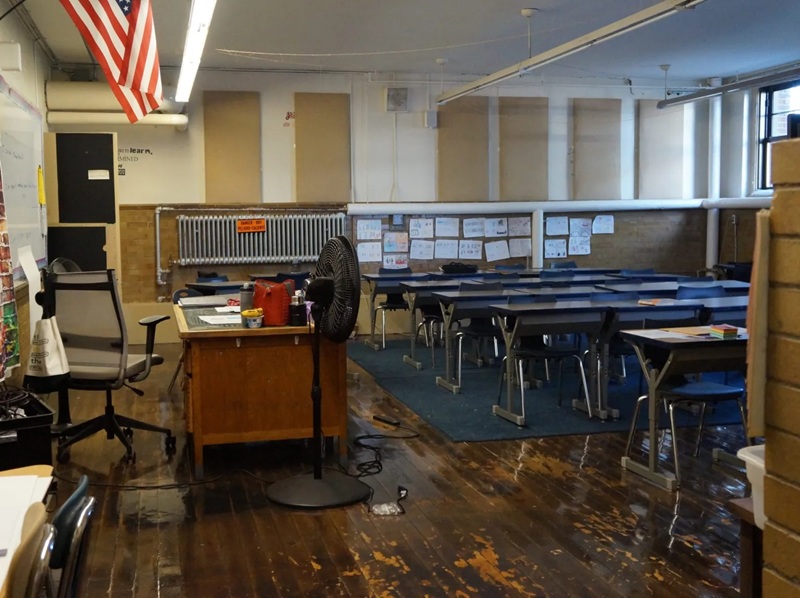Massachusetts needs an education blueprint
Latest MCAS results underscore the absence of a plan and complacency that has set in over student achievement
This Fall’s kindergarten class was born during the first wave of the pandemic. Five years later, we still haven’t stabilized their future.

The data are clear: learning loss isn’t just lingering; in some cases, it’s worsening. The state’s press release announcing the recent MCAS results didn’t call it a “crisis,” but it should have. The severity of the problem isn’t a question, but whether we have the courage to act remains unknown.
Student outcomes in math and reading remain well below 2019 levels across all student groups. Only 13 of more than 350 Massachusetts districts have returned to pre-pandemic performance.
For the fourth straight year, 10th-grade scores in both math and English language arts dropped. Third-grade results are also distressing: reading remains 14 points lower than in 2019, with no improvement in the last four years, resulting in more than half (58 percent) of our children failing to read at grade level.
These are not just numbers. These are the human consequences of policy decisions. In a state that prides itself on high-quality public education, we are graduating students with fewer skills and diminished economic mobility.
So, what’s our strategy? A patchwork of pilots, well-meaning grants, and isolated bright spots. What we don’t have is a statewide blueprint.
Southern states like Mississippi, Alabama, Louisiana, and Tennessee do. Even with less per pupil funding and higher child poverty rates, these states have significantly outpaced growth in comparison to Massachusetts, especially for the most vulnerable students. In 2024, on average, low-income fourth-graders in Mississippi and Louisiana outperformed low-income fourth-graders in Massachusetts on reading and math.
This success is not accidental; it came from deliberate policy choices. In Massachusetts, we can learn from these outcomes and establish key pillars for a blueprint of our own. Here are four.
1. Build Educator Capacity at Scale
Make the message clear: If you want better outcomes for kids, give every teacher the tools to get them there. Mississippi’s policy leaders invested in equipping all teachers to excel in teaching reading and math – before entering the classroom and while on the job. They trained 20,000 K–3 teachers in the science of reading, backed by state-funded literacy coaches who visited schools weekly. Tennessee built a summer training program that reached over 60 percent of K–3 teachers, free of charge.
2. Align Assessment and Accountability
Rather than run from data, drive transparency and focus. Louisiana publicly reports how often teacher prep programs produce effective educators and ties renewal to those results. Tennessee links district funding and interventions to student achievement, with clear academic goals and public dashboards. Poor results became impossible to ignore and possible to fix.
3. Build Instructional Infrastructure and Align Incentives
Align incentives and build ecosystems around evidence-based teaching. Louisiana created a vetted list of high-quality curricula and aligned teacher prep, professional development, and funding around it. Tennessee made sure families had access to reading strategies that matched classroom instruction. They set clear goals, and then ensured vendors, universities, and parents all rowed in the same direction.
4. Hold a High Bar and Stick with It
Raise expectations for all students and stick with them, even when it’s hard. Mississippi kept its third-grade reading retention policy despite backlash. Today, its students lead the nation in reading gains by fourth grade. Alabama set a statewide goal that all students master foundational math by grade five, and backed it with free, high-quality summer math programs for all struggling students. In 2022, it was the only state to improve math scores on NAEP post-pandemic. These states invested in all the key stakeholders to stay the course.
It’s not too late for Massachusetts. We have more resources than our southern peers and a legacy of educational excellence. What we lack is a statewide strategy. But a new window has opened.
We have strong leadership at the Department of Elementary and Secondary Education. Commissioner Pedro Martinez previously led ambitious academic improvement efforts in Chicago — one of the most complex school systems in the country — and knows what it takes to move from fragmentation to focus.
The Healey administration’s Literacy Launch initiative is a promising down payment on improving reading instruction. But without a plan to ensure full statewide adoption of high-quality curricula and evidence-based teaching practices, it won’t reach the scale needed on the time horizon students deserve.
For the first time in over two decades, Massachusetts is revisiting its graduation requirements. To thrive in our state, students need to read deeply, write clearly, think critically, and master the math and problem-solving skills that power our innovation economy. These standards are our compass, and the difference between students charting a future and finding a dead end.
We can’t afford another year of decline. The stakes are too high. A patchwork won’t save us. A blueprint might. But only if we build it now.

Kerry Donahue is the executive director of Teach for America Massachusetts.
CommonWealth Voices is sponsored by The Boston Foundation.
The Boston Foundation is deeply committed to civic leadership, and essential to our work is the exchange of informed opinions. We are proud to partner on a platform that engages such a broad range of demographic and ideological viewpoints.
